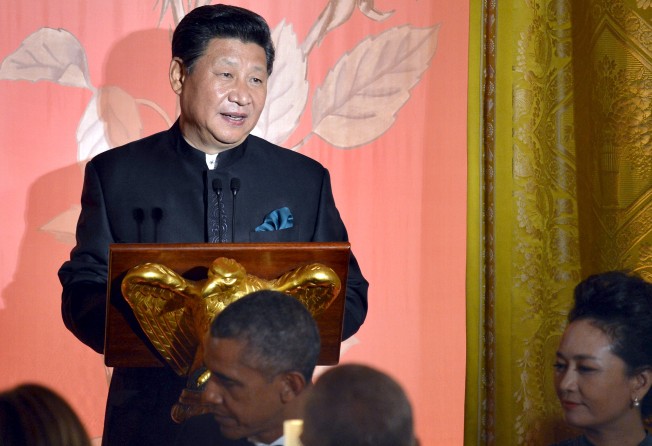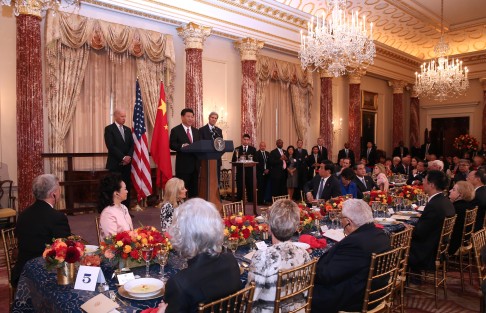China's US$3 billion pledge to help countries tackle climate change is a sign of growing confidence as a leading player in world affairs

China’s pledge to channel billions of dollars to help developing countries battle climate change signals its growing confidence in taking the international lead on the issue, analysts say.
But it could also have some fallout at home as China’s economic growth continues to slow.
As part of a joint statement by President Xi Jinping and his US counterpart Barack Obama, China will “make available 20 billion yuan (HK$24 billion) through a bilateral fund to help developing countries combat climate change”, according to a White House statement.
The world’s biggest emitter of greenhouse gases will also launch a national carbon trading programme in 2017 to support emission reductions in industries ranging from power generation to iron and steel, chemicals, cement, paper-making and non-ferrous metals.
It will become the world’s biggest carbon market, dwarfing the European Union’s decade-old scheme.
“The significant and new climate finance pledges made by China are a game changer … These are a drastic increase from China’s previous finance commitments,” said Li Shuo, senior climate policy analyst with Greenpeace East Asia.
The scale of China’s climate finance promise – coming in at US$3.1 billion – has the potential to be bigger than Washington's US$3 billion pledge to the Green Climate Fund, which was still struggling to get through the US Congress, Li said.
“With this deal, it’s clear that China is ready to lead on climate,” Li said.
He said that confidence marked a fundamental shift from China’s approach at the UN climate conference in Copenhagen six years ago, when China insisted that developed countries – with a historical responsibility for causing global warming – should move first.
Professor Zhang Haibin, from Peking University’s School of International Studies, said that by “playing big” on climate finance, China had clearly chosen the area as the ground on which it would stake its claim for major world power status.
“Offering such a big amount for climate finance is an eye-catching move on an issue that the entire world is watching and will benefit from,” Zhang said.
He said it was also an important anchor for Sino-US ties, which have been battered by differences on a host of issues, including cybersecurity and the South China Sea.
Zhang also said the deal – especially China’s financial pledge – could generate some “repercussions” at home given the domestic economy’s slowing growth. Nevertheless, China’s new international climate strategy was in line with its home-grown goals to clean up the air for the public and transition to a low-carbon economy.
